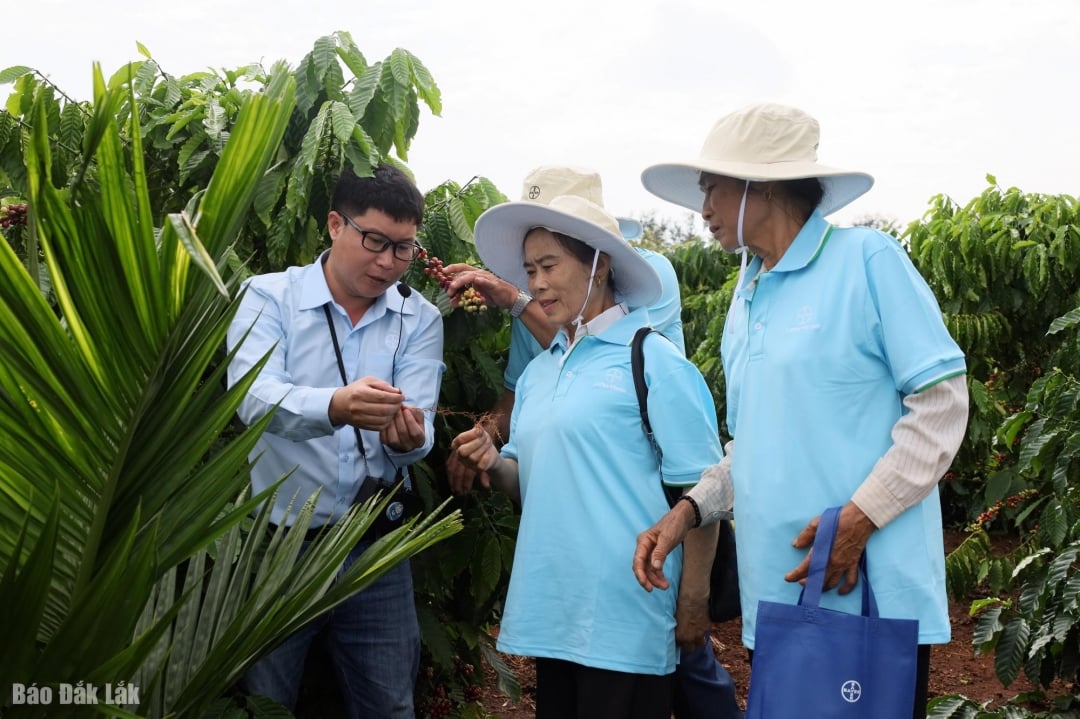 |
| The coffee industry is continuously in the group of billion-dollar agricultural export products of Vietnam. |
In the 2024-2025 crop year, the Vietnamese coffee industry recorded an impressive record when export turnover reached 8.4 billion USD, a surge of 55.5% although the volume only increased slightly by 1.8%. However, that success is facing fierce challenges from import markets, especially Europe (EU) - a market that accounts for nearly 40% of the market share. With increasingly strict regulations on pesticide residues at 0.1 mg/kg and the Regulation on Combating Deforestation and Forest Degradation (EUDR), changing production thinking is no longer an option but a mandatory requirement.
According to the assessment of the Department of Crop Production and Plant Protection, the export value has continuously reached new peaks, along with the high domestic coffee prices, which have encouraged farmers to increase investment and intensive cultivation. However, this is also accompanied by great pressure from pests such as mealybugs, dry branches, nematodes... and the risk of overusing pesticides, leading to residues, directly affecting the quality of coffee beans and the reputation of Vietnam in the international market.
This reality requires a strong shift from "quantity-driven" production to "quality-focused" production. And the recent "Connecting the chain - Elevating Vietnamese Coffee" seminar organized by Bayer Vietnam Co., Ltd. in Ea Ninh commune ( Dak Lak province) is a typical example of this shift.
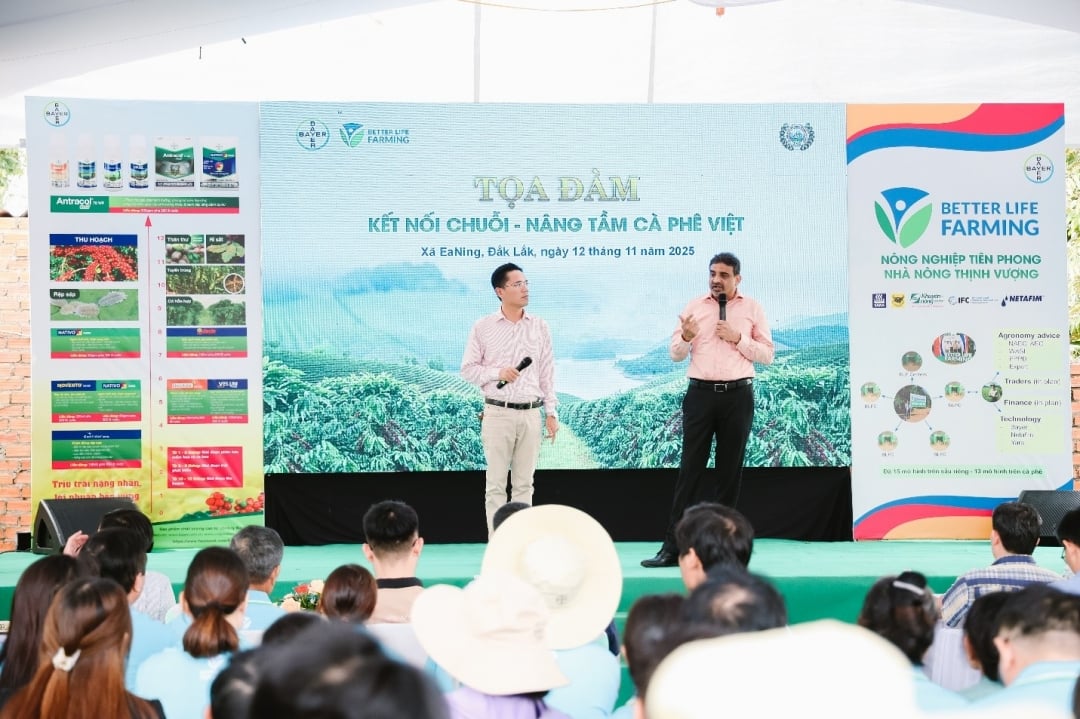 |
| Seminar "Connecting the chain - Elevating Vietnamese Coffee" organized by Bayer Vietnam Co., Ltd. in Ea Ninh commune (Dak Lak province). |
Mr. Dam Huy Ly (village 7, Ea Ninh commune), a farmer participating in the model, said that changing the mindset, abandoning old habits such as abusing pesticides to switch to sustainable farming according to technical instructions has brought clear benefits. "The garden is green, clean, beautiful, reduces production costs, protects your health and the environment. The most important thing is to ensure that the coffee has no residue, confidently meeting export standards," Mr. Ly shared.
Mr. Nguyen Minh Hung, Coffee Industry Manager (Bayer Vietnam Co., Ltd.) shared in the discussion: "The company is changing its approach by building model models for farmers to "see and hear" and commit to quality through residue testing for 3 consecutive years that meet export standards. Bayer not only provides products but also builds an ecosystem, with 13 model gardens in Dak Lak in 2025, a commitment to a proven process of effective sustainable farming for export. The signing of a memorandum of understanding between Bayer Vietnam and 721 Coffee Co., Ltd. right at the discussion is a strong commitment, ensuring stable output for clean, standard agricultural products."
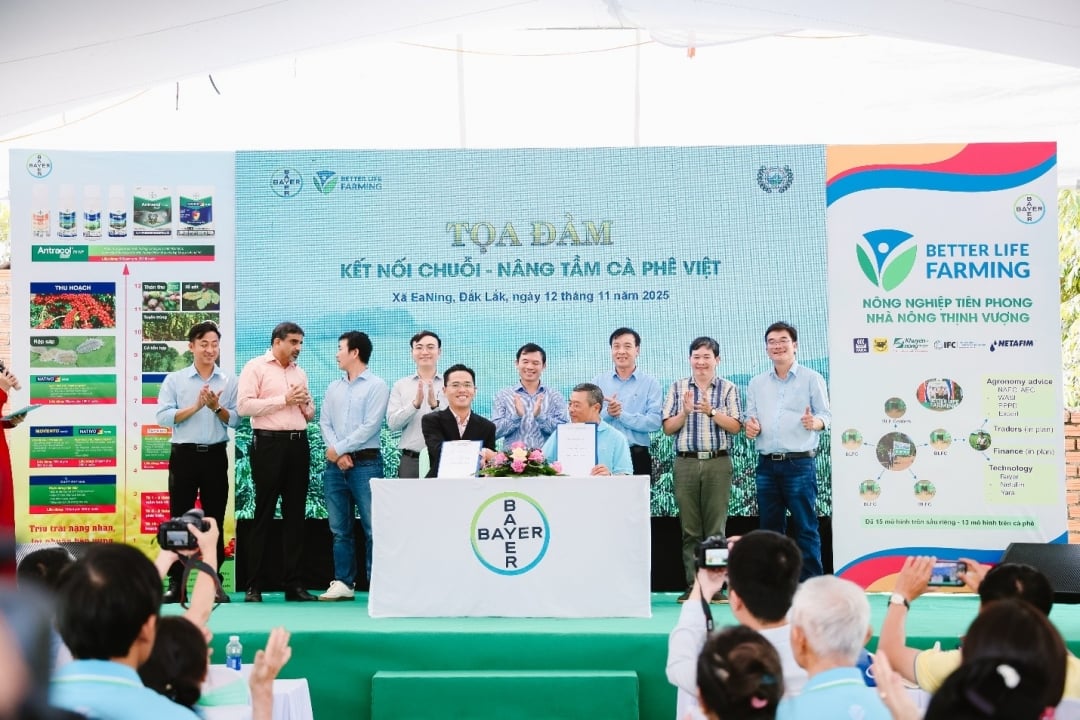 |
| Bayer Vietnam and 721 Coffee Company Limited signed a memorandum of understanding to ensure stable output for qualified agricultural products. |
Coffee is the national staple crop, currently exported to more than 80 countries and territories. With a total area of about 730,000 hectares, Vietnam holds the position of the world's leading exporter of Robusta coffee and is second only to Brazil in total output.
Mr. Kg Krishnamurthy, Director of Bayer Vietnam Crop Science Division, said that the company's mission is to bring comprehensive sustainable coffee farming solutions to the Central Highlands. The solution package focuses on soil management, tree protection, water saving and climate change adaptation. The project has three objectives for farmers: increasing productivity and economic value; ensuring long-term sustainability; and connecting value chains and supporting output. He stressed that this is a joint effort, requiring close cooperation between the government, Wasi Institute, partners and farmers. |
The coffee industry has consistently been in the group of billion-dollar agricultural exports. Notably, in the 2024-2025 crop year, coffee export turnover has reached a record of 8.4 billion USD. This is a positive signal, showing market expansion thanks to free trade agreements such as RCEP and CPTPP.
In that context, Dak Lak continues to affirm its role as the "coffee capital" of the country, leading in productivity, output and contributing over 1 billion USD in export turnover. Currently, Dak Lak has issued a project to develop the coffee industry until 2030, showing special attention to this strategic crop. However, the coffee industry is facing many major challenges such as: climate change and complex epidemics; production is still small, fragmented, and unconnected; the market is still unstable while the price of agricultural input materials is high...
Mr. Nguyen Hac Hien, Head of the Department of Crop Production and Plant Protection, said that for sustainable development, the direction of Dak Lak province is to focus on improving quality instead of chasing output. This is concretized by applying international certifications such as GlobalGAP, 4C, Rainforest... At the same time, reorganizing production in the direction of cooperation, chain linkage, encouraging farmers to join cooperatives and record household diaries; promoting the application of science and technology and digital transformation in production... The cooperation model between Bayer, Wasi Institute and the Agricultural Extension Center (successful on 15 durian models and 13 coffee models) is typical of this direction.
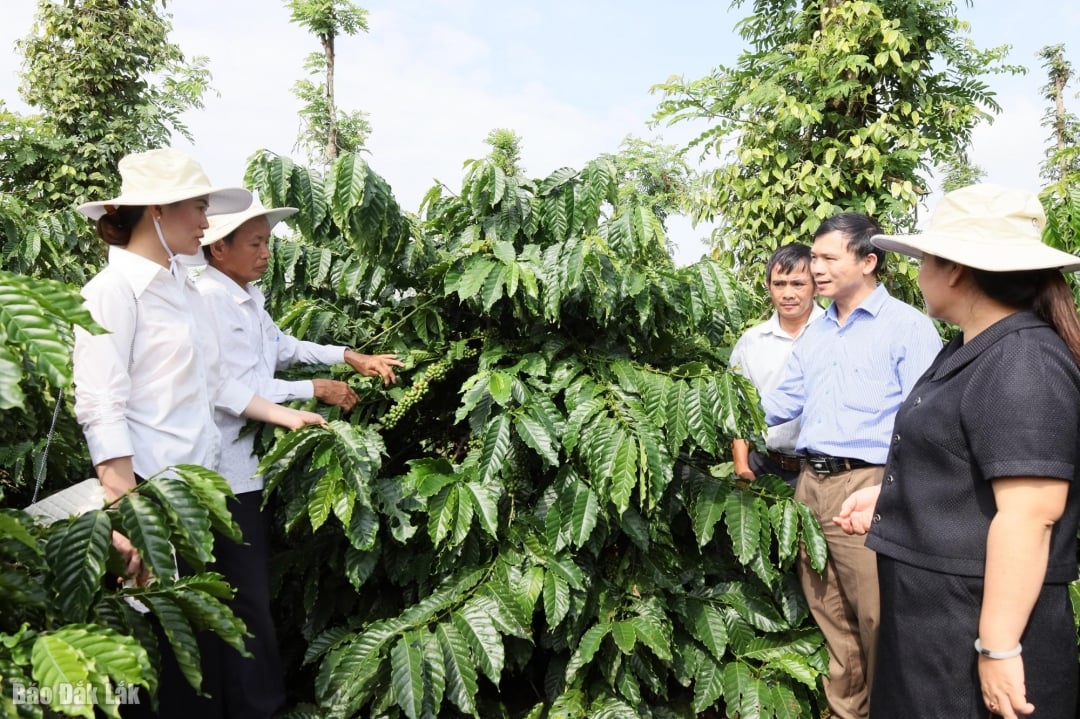 |
| To "go global" sustainably, chain connection is an inevitable strategic vision. |
“The coffee industry needs the total mobilization of the public sector (budget, projects) and the private sector (enterprises, people), in which enterprises play a leading role, connecting cooperatives and farmers to jointly achieve the goal of sustainable development,” Mr. Hien emphasized.
In 2026, the Better Life Farming project will continue to expand its scale, aiming to develop at least 20 new linkage models. These models will focus on farms, coffee companies and key raw material areas of purchasing units.
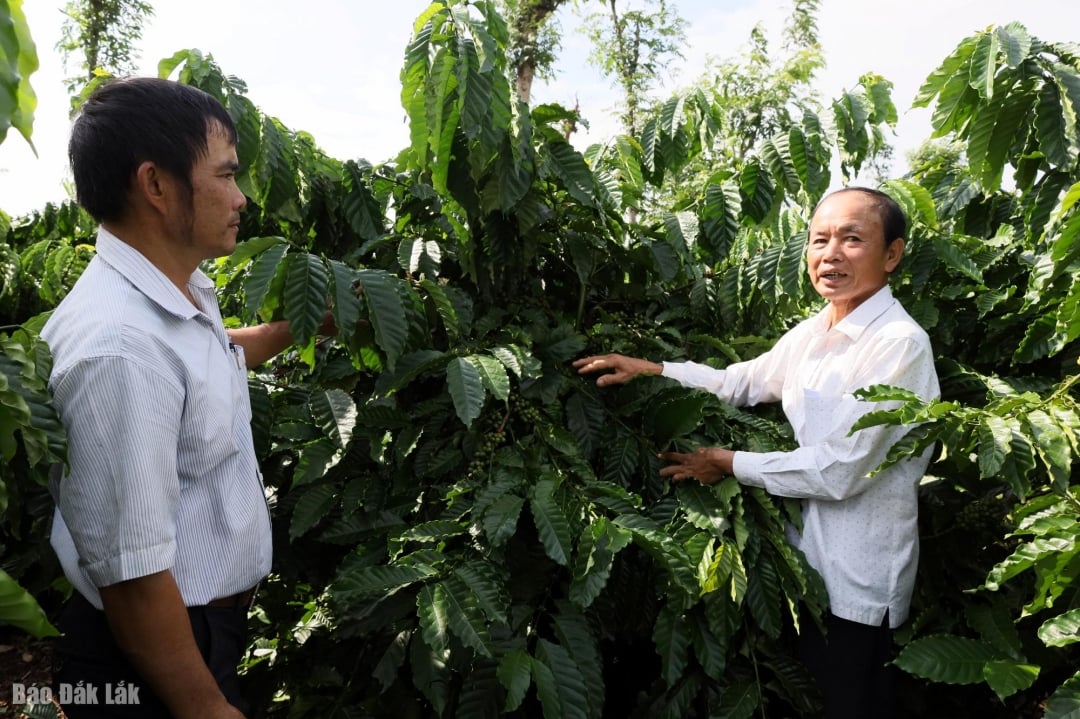 |
| Mr. Dam Huy Ly (village 7, Ea Ninh commune) (right), a farmer participating in the model, said he saw clear positive changes compared to traditional farming. |
At the same time, the project will replicate synchronous technical solutions to many smallholder farmers, similar to the effective model in Mr. Dam Huy Ly's garden. The goal is to spread advanced farming solutions to farmers not only in Dak Lak but also throughout the Central Highlands region. Bayer will continue to focus mainly on coffee trees in raw material areas, while expanding the model to durian and pepper trees, to strengthen the connection for a sustainable Vietnamese agriculture.
More importantly, this is a strategic vision for the Vietnamese coffee industry to build a "clean - sustainable - high quality" brand. This is the inevitable path to overcome technical barriers such as EUDR, increase added value and confidently "step out into the world". The cooperation of all "links" will create a synergistic strength, helping to raise the position and value of Vietnamese coffee beans on the world map.
Source: https://baodaklak.vn/kinh-te/nong-lam-nghiep/202511/ket-noi-chuoi-tam-nhin-chien-luoc-cho-ca-phe-viet-buoc-ra-toan-cau-be214e9/



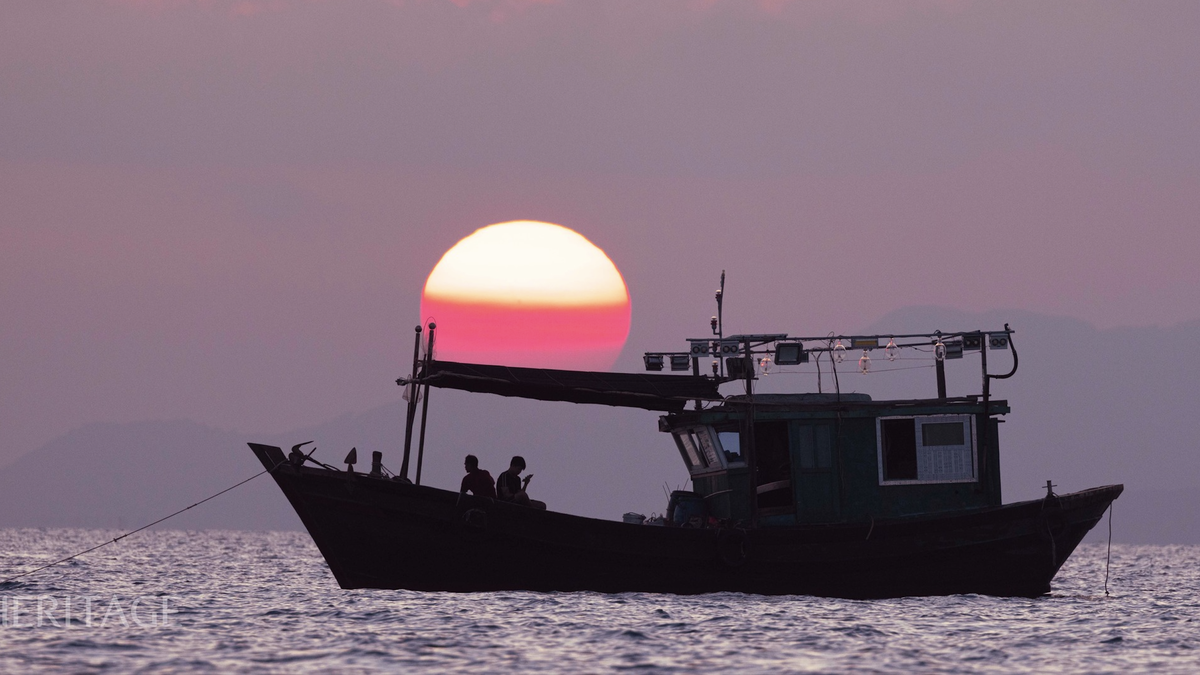

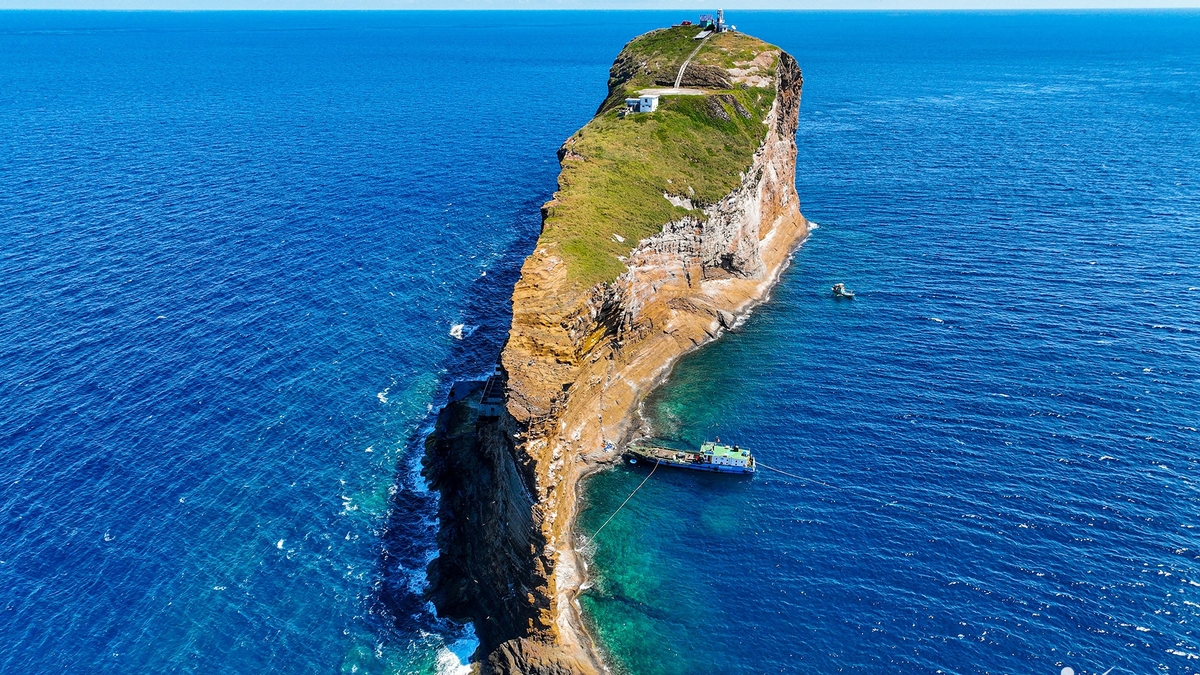
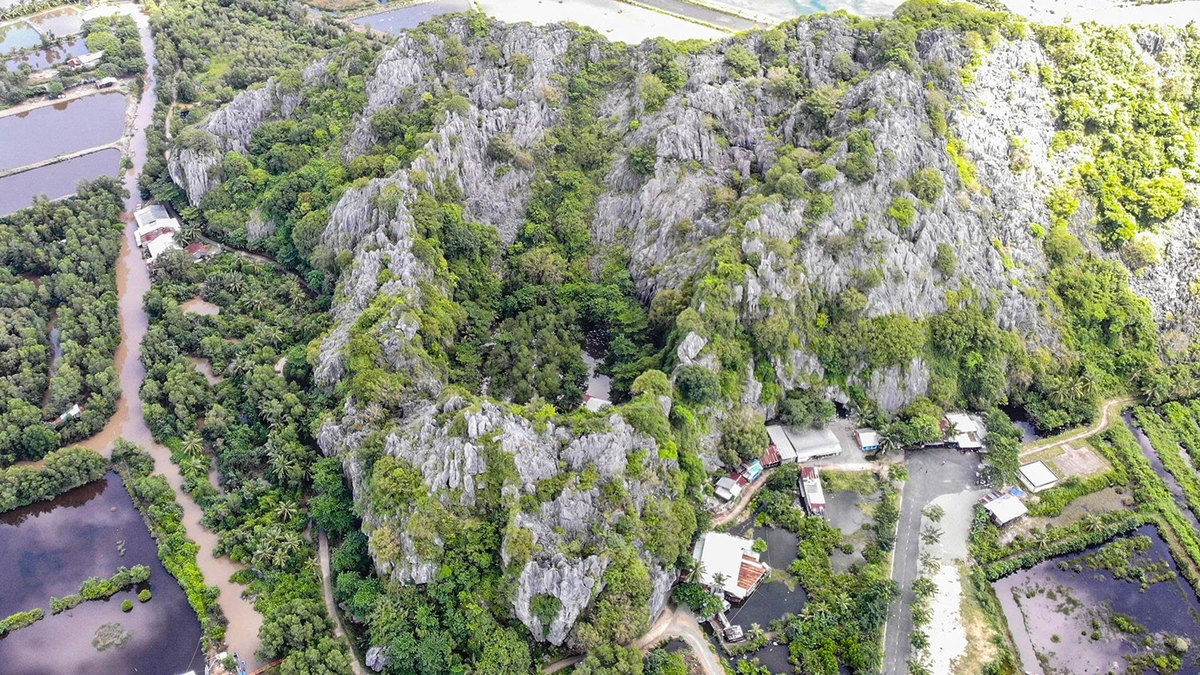








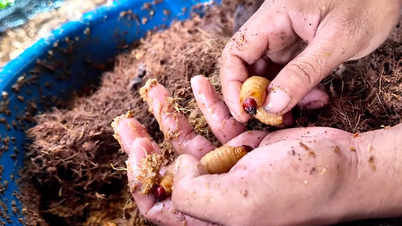




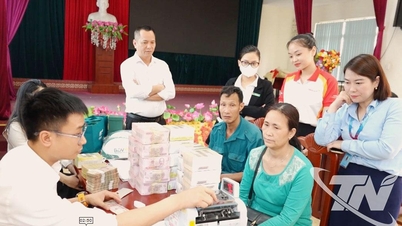

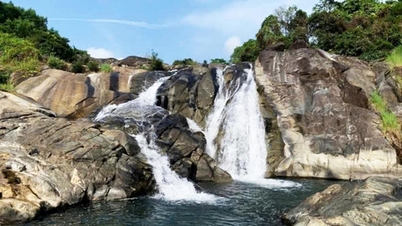



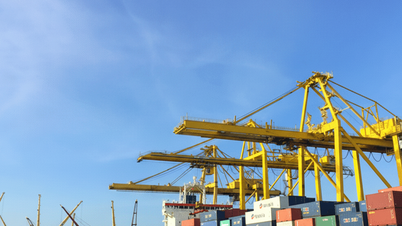





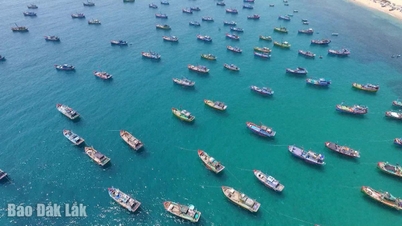
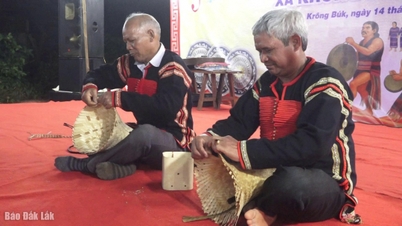
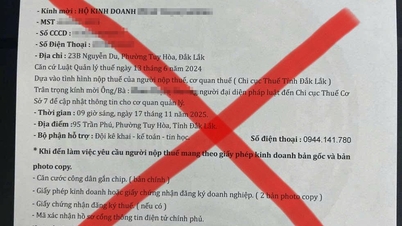
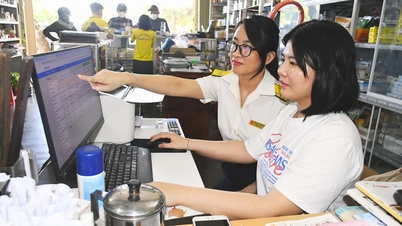
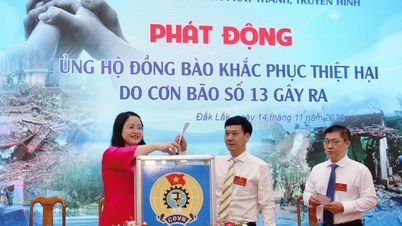
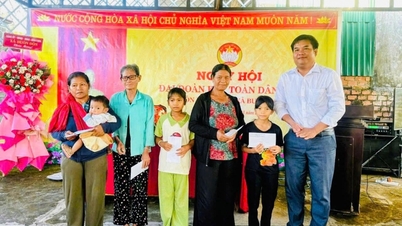

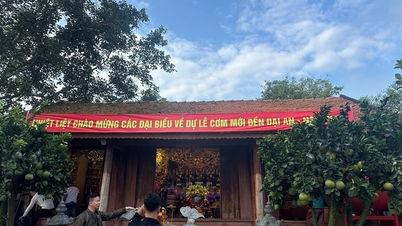










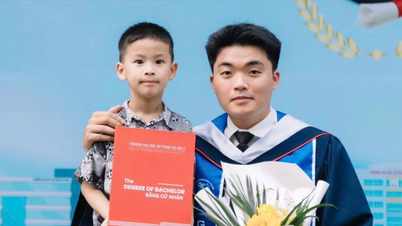
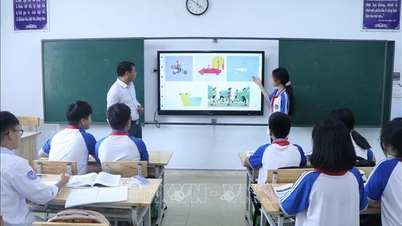

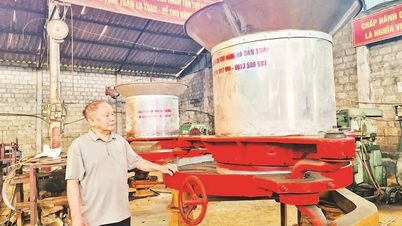
























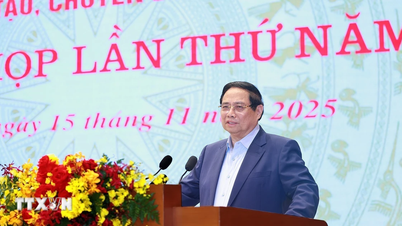
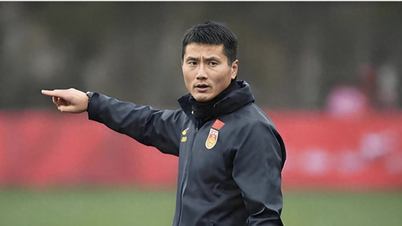



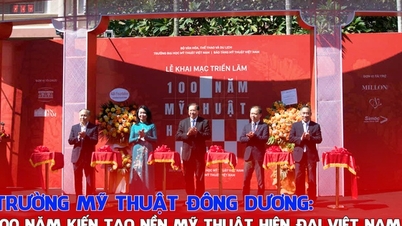

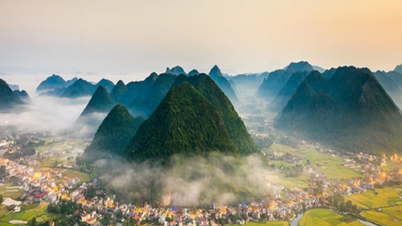

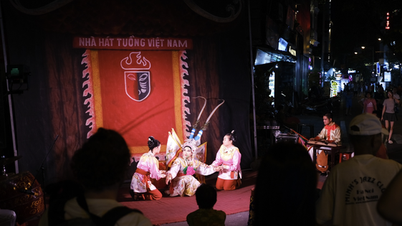
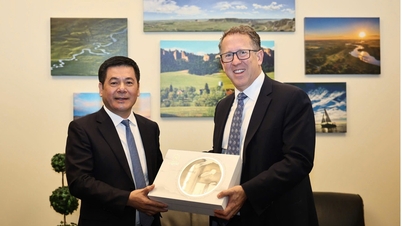

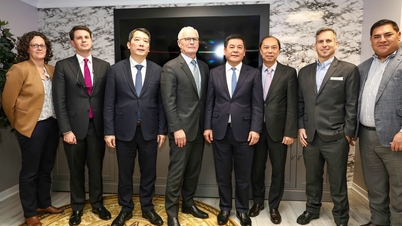
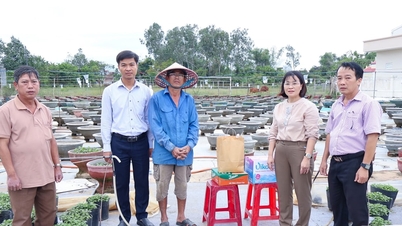
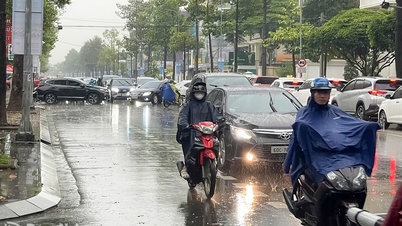

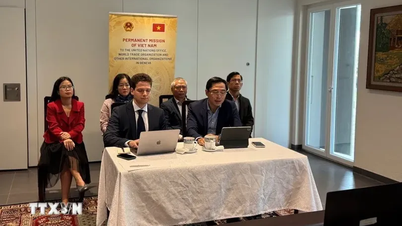
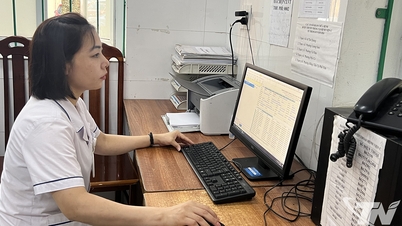
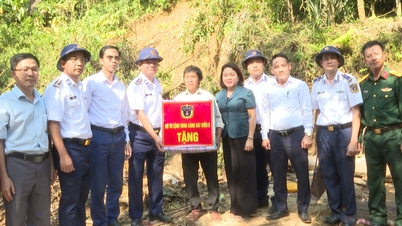









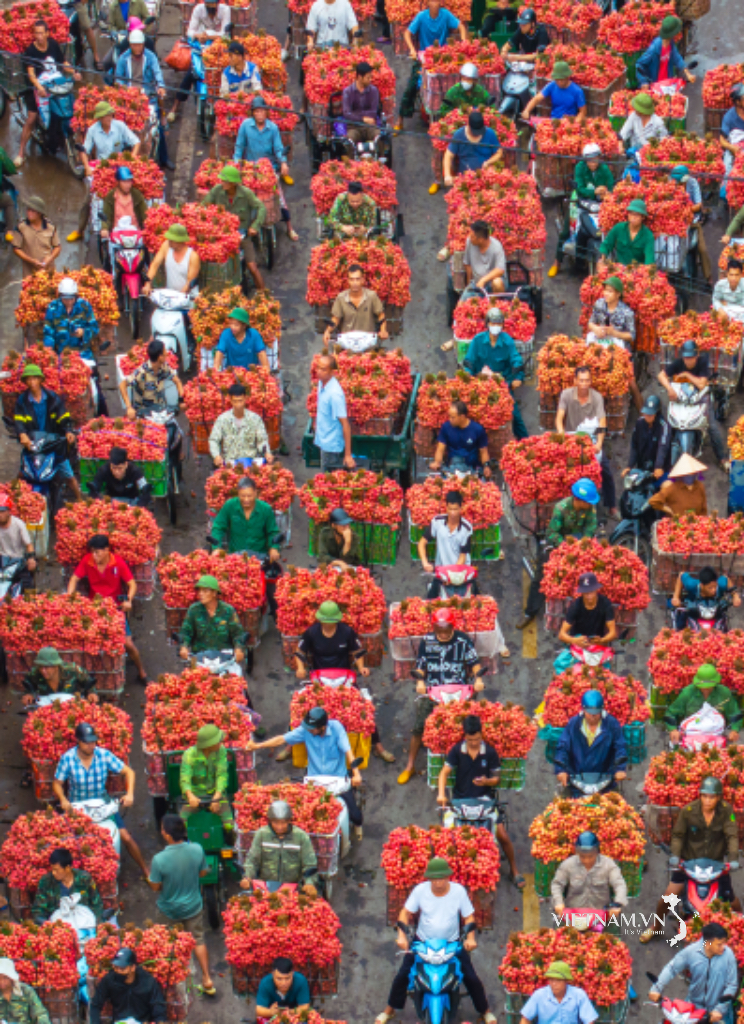


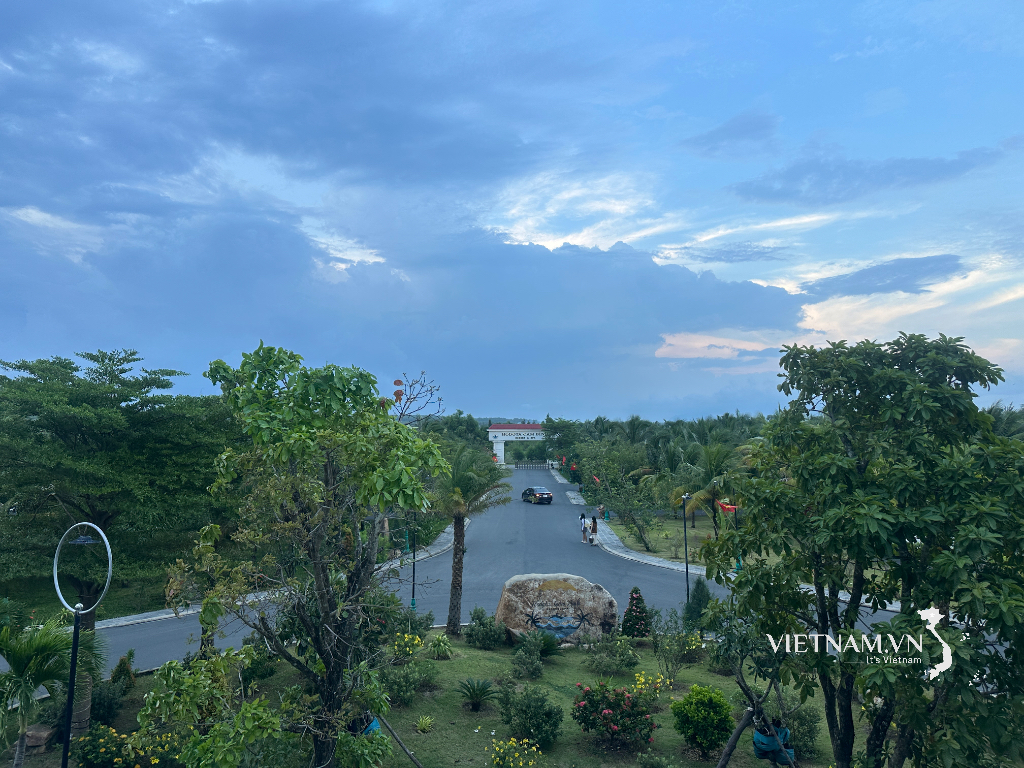
Comment (0)